Newham, a lively and diverse area of London, is particularly at risk for flooding because it's largely built on a floodplain. With its dense population and plenty of hard surfaces, this borough is not only prone to waterlogging but also gets quite hot during the summer months. According to the Environment Agency’s Flood Risk map, many parts of Newham face medium to high flood risk.
To tackle this issue, our project focused on partnering with 14 schools in Newham that are particularly vulnerable to flooding. This project was a collaborative effort, co-funded by the Department for Education (DfE) and Newham Council, with Meristem Design and Regenerous spearheading the design and implementation phases. The initiative also involves the schools directly, fostering a sense of ownership and engagement with the installed SuDS features and the forthcoming food-focused workshops.
The core of this project is twofold: enhancing urban flood resilience while educating and inspiring young people about sustainable living, food production, and healthy cooking practices. It represents a practical response to climate challenges, offering a tangible example of how urban spaces can serve multiple functions - managing water sustainably while contributing to local food sources and providing health-giving opportunities to students.
We audited 14 schools to identify the SuDS features best suited to each school's unique environmental and spatial needs. This audit was essential in tailoring our approach to each location, ensuring the maximum possible impact within the budget.
Key Project Outcomes:
Installation of 109 SuDS planters, which added over 340m² of edible planting and a remarkable water storage capacity of 47,102.1 litres (taking into account the storage capacity / void space of the different internal materials).
Conversion of 90m² of a tarmac playground into permeable surfaces for enhanced water infiltration.
Integration of cutting-edge Hydrorock® technology for superior water management within the SuDS planter ecosystems.
Our SuDS planters gather rainwater runoff from rooftops and function similarly to a Rain Garden within a planter, providing a sustainable approach to managing flash floods and stormwater. AquaPlanter™ efficiently augment the capabilities of surface water drainage systems by capturing and storing rainfall, enabling gradual absorption into the ground, or controlled release back into the piped network.
At New Directions School - where we installed 14 SuDS planters, we also installed a 21m raised Rain Garden planter made from black powder-coated galvanised steel.
The raised Rain Garden planter allows surface water to flow in and be stored through surface-level perforations. A combination of Hydrorock©, granular material, geotextile membrane, and a specialised soil composition enables plants to absorb water through their roots via a wicking process. This saturates the planter's soil, effectively storing a specific amount of water. The remaining water gradually discharges into the soil beneath the Rain Garden, promoting efficient water distribution.
Community Impact, Feedback and Future Plans
Our work isn't just about preventing floods in Newham; it's also about helping the community care for the environment and learn about growing food. We’re teaching kids to grow edible herbs and plants right in their schoolyards.
This initiative is rooted in the understanding that food production accounts for a quarter of the world's greenhouse gas emissions, and in the UK alone, a significant amount of household food waste is generated annually, much of which could have been consumed.
We know that making food can cause pollution and waste, especially when good food gets thrown away. Our project helps young people learn about these issues and what they can do to help. By growing food at school, they see how we can all make choices that are better for our earth. The students are getting involved by looking after the planters themselves, which helps them learn and care more about their environment.
We’re also excited to start cooking and gardening classes soon. These will let the students use what they’ve grown to make food and learn more about being friendly to the environment in their everyday lives.
The project has received positive feedback from teachers, parents and children, highlighting its impact and value within the community.
“We had Meristem install some planters at our school in Stratford. The planters have a great, self-sufficient design, being maintained almost entirely by rainwater, and look great in our playground. Wilf was professional and prompt in all our communication with him and we are truly pleased with the final result”
As we finish installations and move into spring, we’re excited to start workshops that teach sustainable living and care for our environment. Our project has not only brought more green space to local schools but has also helped kids learn to live more eco-friendly lives.
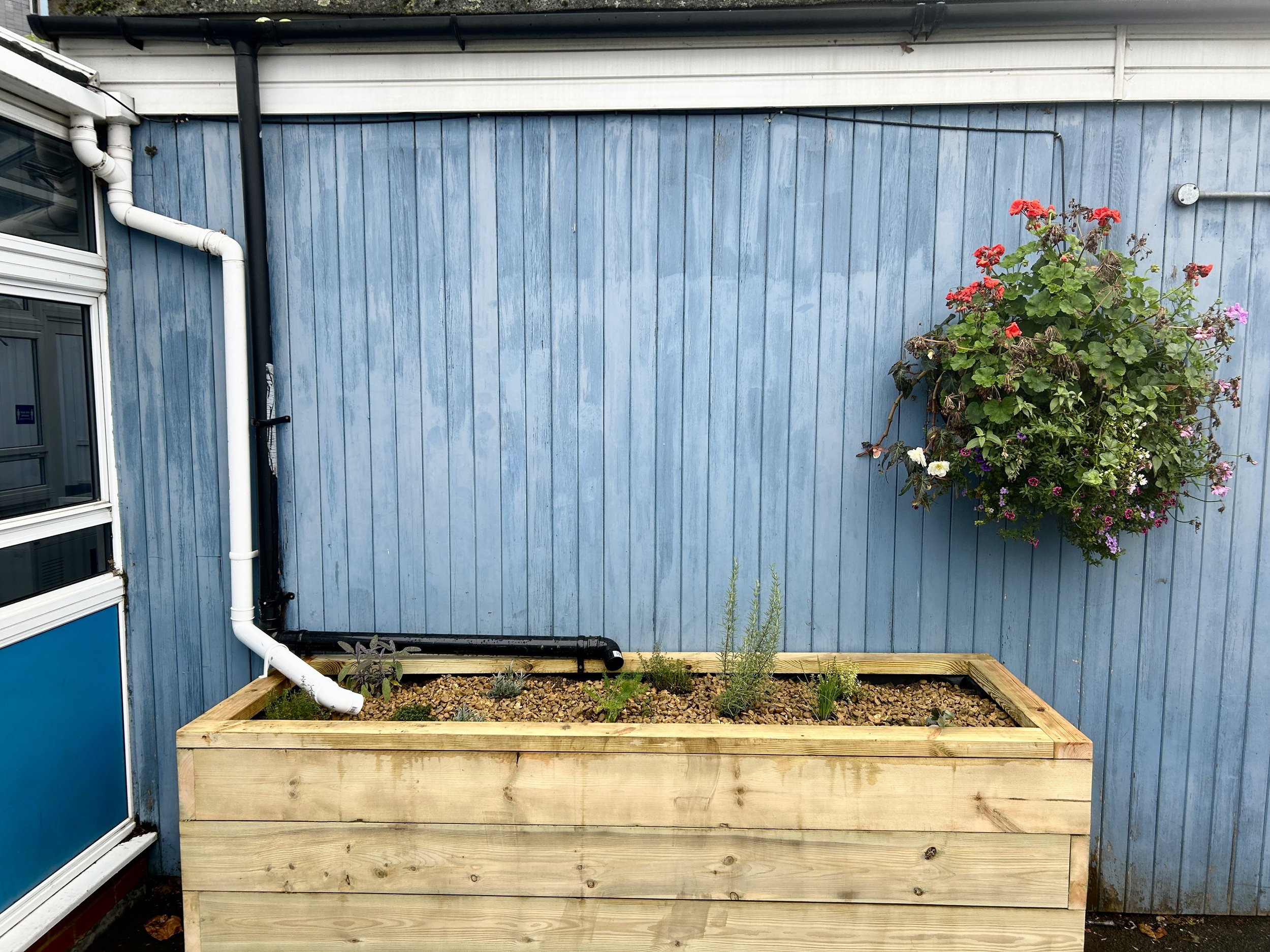
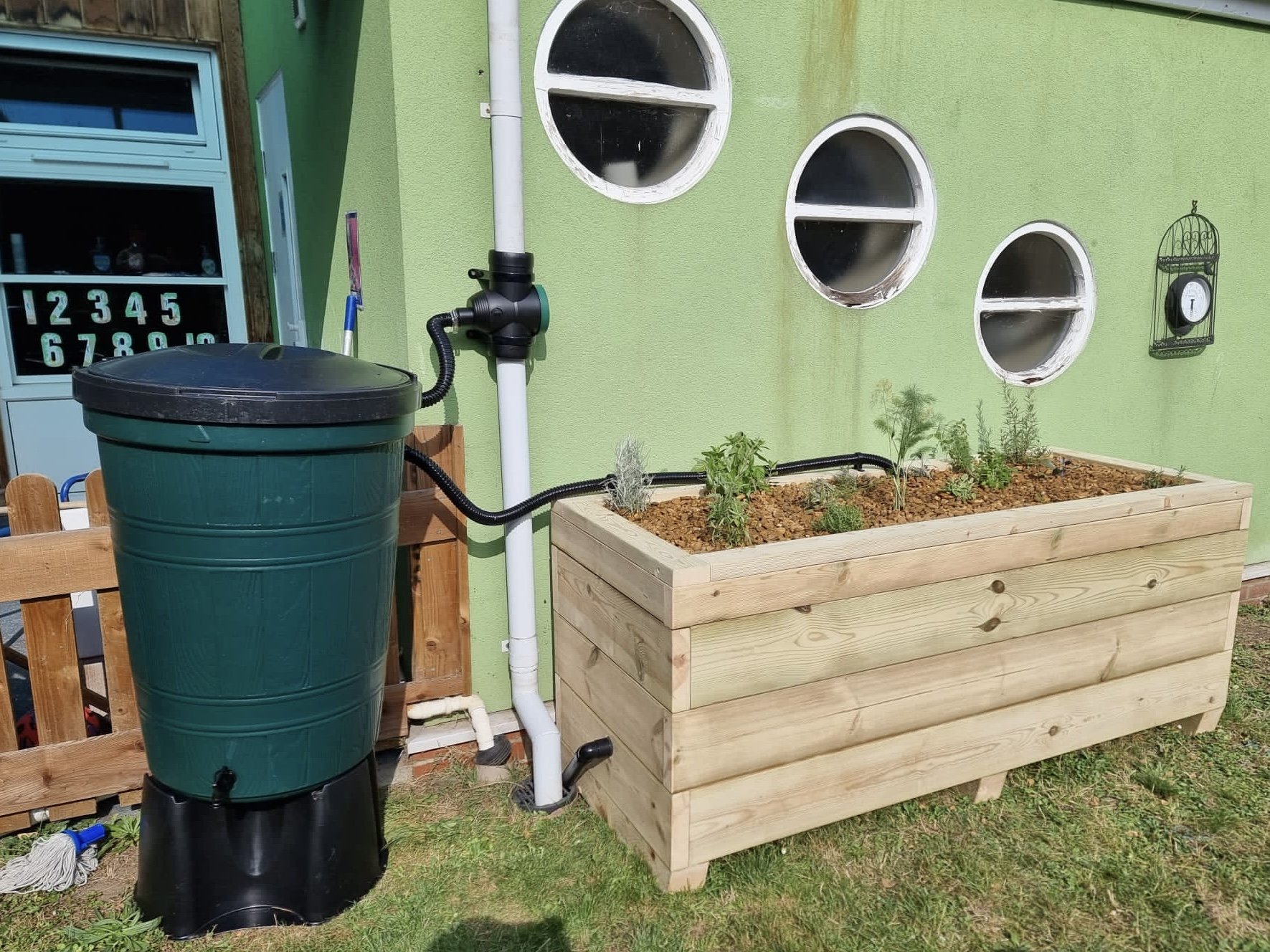
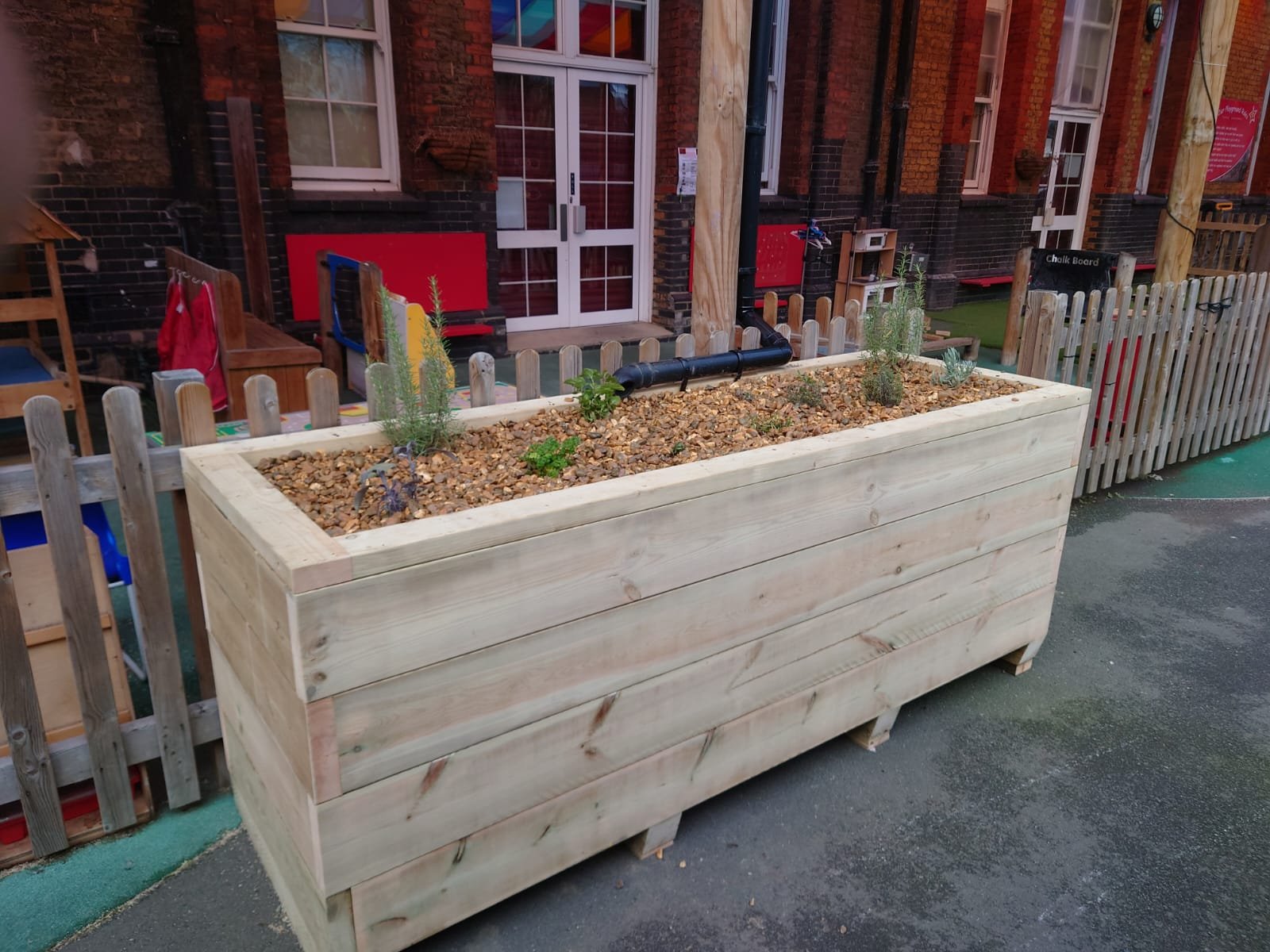
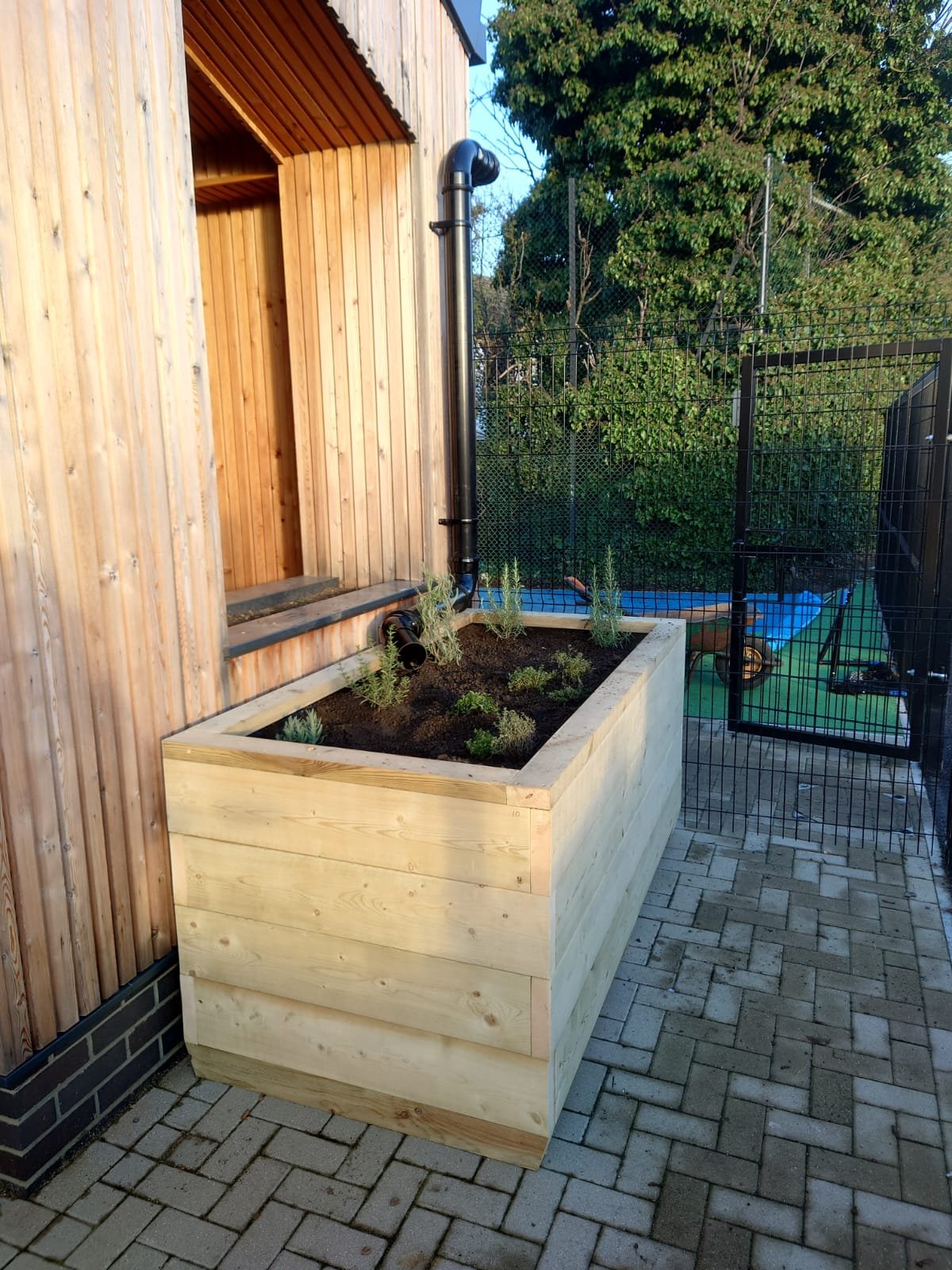
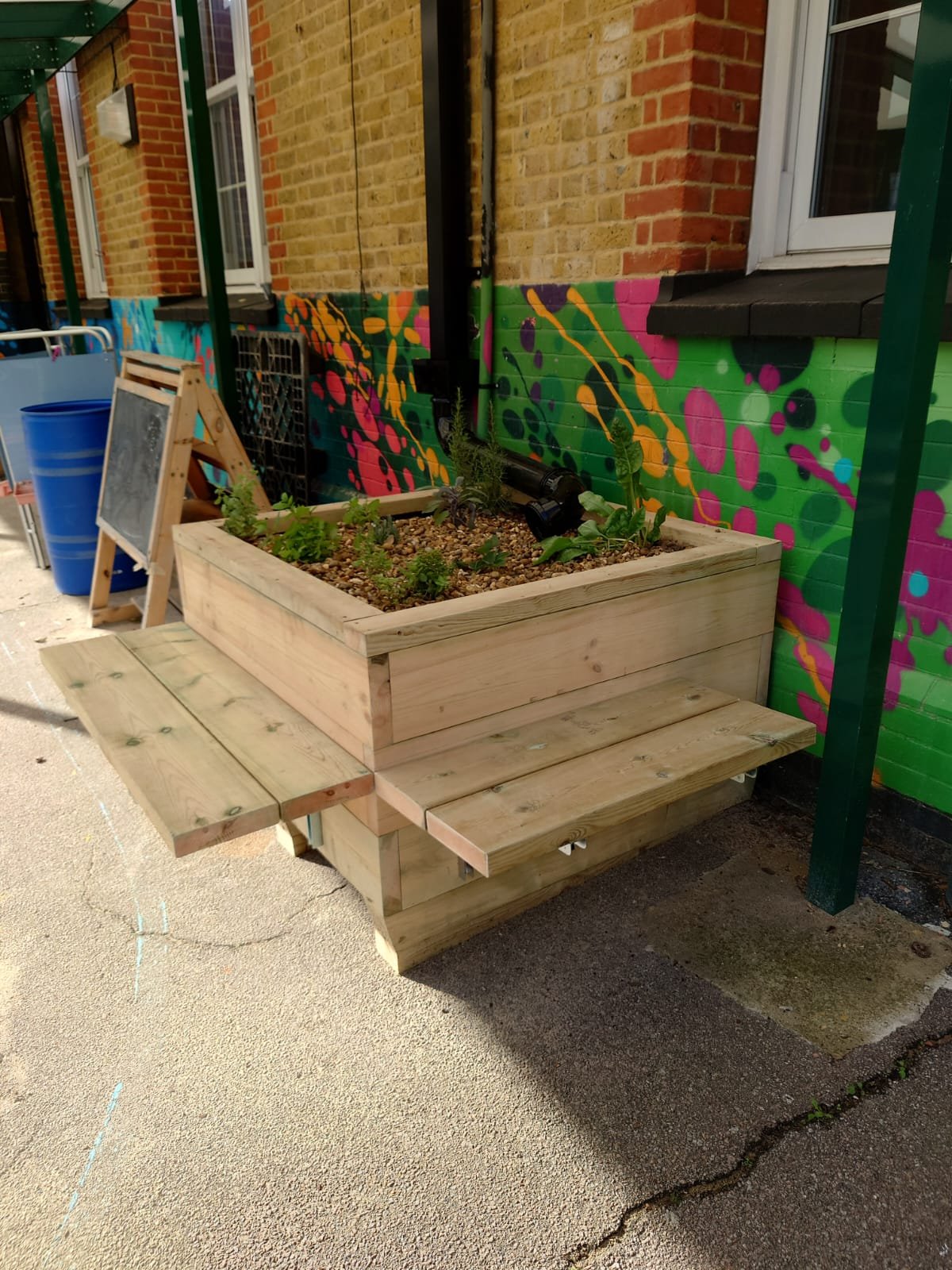
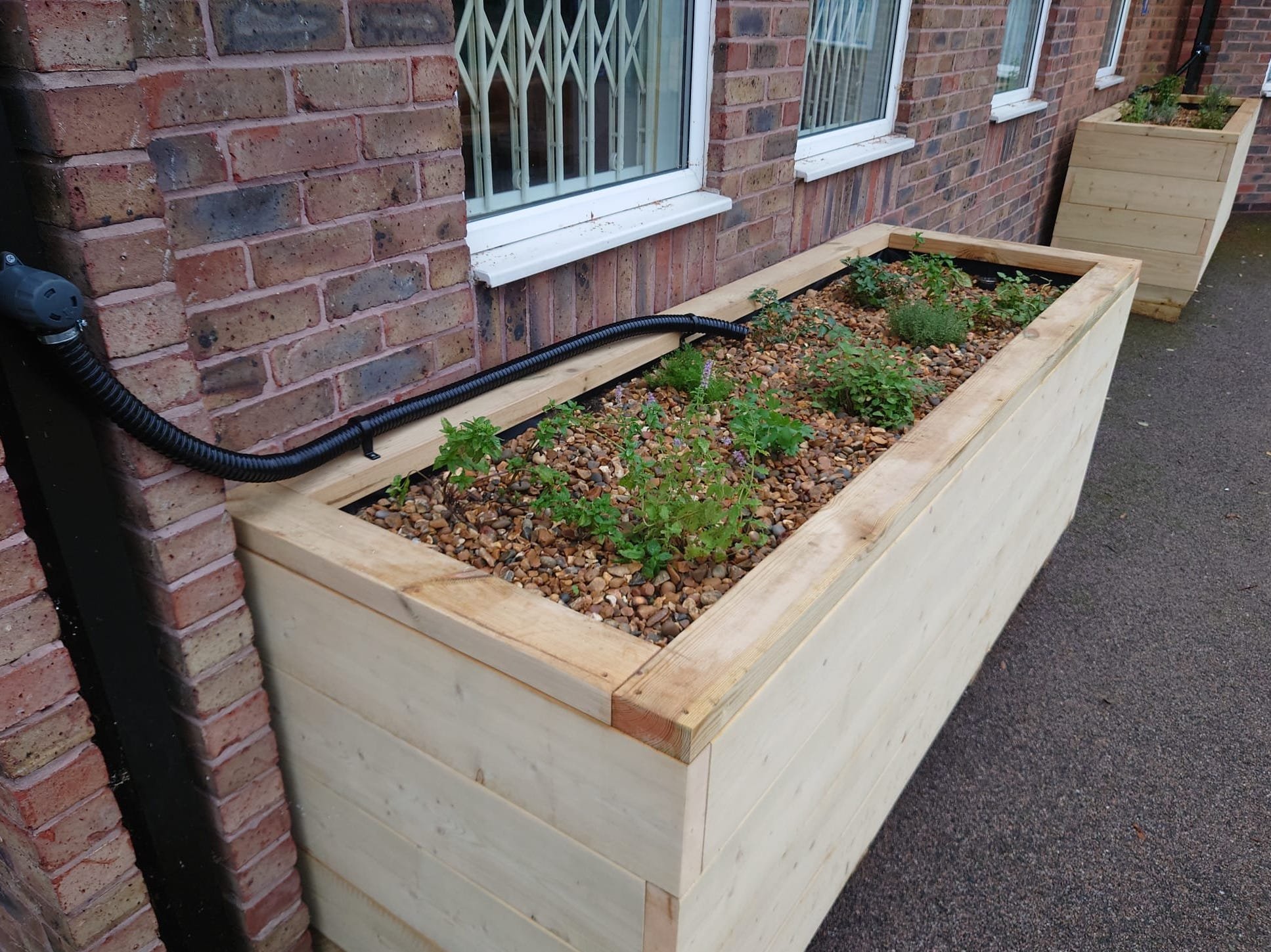
Meristem's Commitment
At Meristem Design, our ethos of "Turning the Grey Green" is about more than aesthetic transformations. It's about fostering an environmentally conscious generation, ready to tackle the global challenges of climate change and urbanisation with innovative, sustainable solutions like the SuDS Planter - AquaPlanter.
